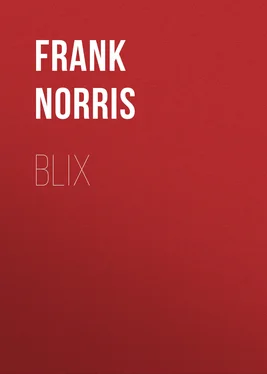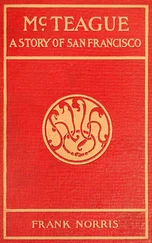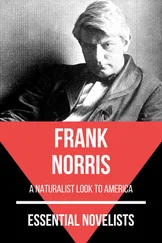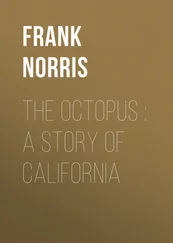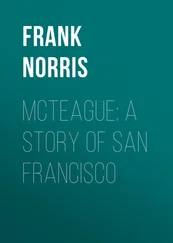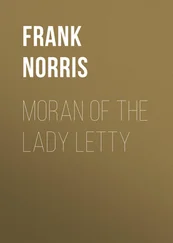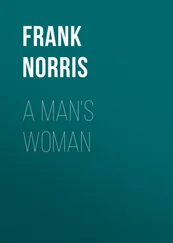Frank Norris - Blix
Здесь есть возможность читать онлайн «Frank Norris - Blix» — ознакомительный отрывок электронной книги совершенно бесплатно, а после прочтения отрывка купить полную версию. В некоторых случаях можно слушать аудио, скачать через торрент в формате fb2 и присутствует краткое содержание. Жанр: foreign_prose, literature_19, foreign_antique, на английском языке. Описание произведения, (предисловие) а так же отзывы посетителей доступны на портале библиотеки ЛибКат.
- Название:Blix
- Автор:
- Жанр:
- Год:неизвестен
- ISBN:нет данных
- Рейтинг книги:5 / 5. Голосов: 1
-
Избранное:Добавить в избранное
- Отзывы:
-
Ваша оценка:
- 100
- 1
- 2
- 3
- 4
- 5
Blix: краткое содержание, описание и аннотация
Предлагаем к чтению аннотацию, описание, краткое содержание или предисловие (зависит от того, что написал сам автор книги «Blix»). Если вы не нашли необходимую информацию о книге — напишите в комментариях, мы постараемся отыскать её.
Blix — читать онлайн ознакомительный отрывок
Ниже представлен текст книги, разбитый по страницам. Система сохранения места последней прочитанной страницы, позволяет с удобством читать онлайн бесплатно книгу «Blix», без необходимости каждый раз заново искать на чём Вы остановились. Поставьте закладку, и сможете в любой момент перейти на страницу, на которой закончили чтение.
Интервал:
Закладка:
"But I tell you that I DO love you," protested Condy, trying to make the words ring true.
Travis looked about the room an instant as if in deliberation; then abruptly: "Ah! what am I going to DO with such a boy as you are, after all—a great big, overgrown boy? Condy Rivers, look at me straight in the eye. Tell me, do you honestly love me? You know what I mean when I say 'love.' Do you love me?"
"No, I don't!" he exclaimed blankly, as though he had just discovered the fact.
"There!" declared Travis—"and I don't love you." They both began to laugh.
"Now," added Travis, "we don't need to have the burden and trouble of keeping up the pretences any more. We understand each other, don't we?"
"This is queer enough," said Condy drolly.
"But isn't it an improvement?"
Condy scoured his head.
"Tell me the truth," she insisted; "YOU be sincere."
"I do believe it is. Why—why—Travis by Jingo! Travis, I think I'm going to like you better than ever now."
"Never mind. Is it an agreement?"
"What is?"
"That we don't pretend to love each other any more?"
"All right—yes—you're right; because the moment I began to love you I should like you so much less."
She put out her hand. "That's an agreement, then."
Condy took her hand in his. "Yes, it's an agreement." But when, as had been his custom, he made as though to kiss her hand, Travis drew it quickly away.
"No! no!" she said firmly, smiling for all that—"no more foolishness."
"But—but," he protested, "it's not so radical as that, is it? You're not going to overturn such time-worn, time-honored customs as that? Why, this is a regular rebellion."
"No, sire," quoted Travis, trying not to laugh, "it is a revolution."
Chapter III
Although Monday was practically a holiday for the Sunday-supplement staff of "The Times," Condy Rivers made a point to get down to the office betimes the next morning. There were reasons why a certain article descriptive of a great whaleback steamer taking on grain for famine-stricken India should be written that day, and Rivers wanted his afternoon free in order to go to Laurie Flagg's coming-out tea.
But as he came into his room at "The Times" office, which he shared with the exchange and sporting editors, and settled himself at his desk, he suddenly remembered that, under the new order of things, he need not expect to see Travis at the Flaggs'.
"Well," he muttered, "maybe it doesn't make so much difference, after all. She was a corking fine girl, but—might as well admit it—the play is played out. Of course, I don't love her—any more than she loves me. I'll see less and less of her now. It's inevitable, and after a while we'll hardly even meet. In a way, it's a pity; but, of course, one has to be sensible about these things.… Well, this whaleback now."
He rang up the Chamber of Commerce, and found out that the "City of Everett," which was the whaleback's name, was at the Mission Street wharf. This made it possible for him to write the article in two ways. He either could fake his copy from a clipping on the subject which the exchange editor had laid on his desk, or he could go down in person to the wharf, interview the captain, and inspect the craft for himself. The former was the short and easy method. The latter was more troublesome, but would result in a far more interesting article.
Condy debated the subject a few minutes, then decided to go down to the wharf. San Francisco's water-front was always interesting, and he might get hold of a photograph of the whaleback. All at once the "idea" of the article struck him, the certain underlying notion that would give importance and weight to the mere details and descriptions. Condy's enthusiasm flared up in an instant.
"By Jove!" he exclaimed; "by Jove!"
He clapped on his hat wrong side foremost, crammed a sheaf of copy-paper into his pocket, and was on the street again in another moment. Then it occurred to him that he had forgotten to call at his club that morning for his mail, as was his custom, on the way to the office. He looked at his watch. It was early yet, and his club was but two blocks' distance. He decided that he would get his letters at the club, and read them on the way down to the wharf.
For Condy had joined a certain San Francisco club of artists, journalists, musicians, and professional men that is one of the institutions of the city, and, in fact, famous throughout the United States. He was one of the younger members, but was popular and well liked, and on more than one occasion had materially contributed to the fun of the club's "low jinks."
In his box this morning he found one letter that he told himself he must read upon the instant. It bore upon the envelope the name of a New York publishing house to whom Condy had sent a collection of his short stories about a month before. He took the letter into the "round window" of the club, overlooking the street, and tore it open excitedly. The fact that he had received a letter from the firm without the return of his manuscript seemed a good omen. This was what he read:
Conde Rivers, Esq., Bohemian Club, San Francisco, Cal.
DEAR SIR: We return to you by this mail the manuscript of your stories, which we do not consider as available for publication at the present moment. We would say, however, that we find in several of them indications of a quite unusual order of merit. The best-selling book just now is the short novel—say thirty thousand words—of action and adventure. Judging from the stories of your collection, we suspect that your talent lies in this direction, and we would suggest that you write such a novel and submit the same to us.
Very respectfully, THE CENTENNIAL CO., New York.Condy shoved the letter into his pocket and collapsed limply into his chair.
"What's the good of trying to do anything anyhow!" he muttered, looking gloomily down into the street. "My level is just the hack-work of a local Sunday supplement, and I am a fool to think of anything else."
His enthusiasm in the matter of the "City of Everett" was cold and dead in a moment. He could see no possibilities in the subject whatever. His "idea" of a few minutes previous seemed ridiculous and overwrought. He would go back to the office and grind out his copy from the exchange editor's clipping.
Just then his eye was caught by a familiar figure in trim, well-fitting black halted on the opposite corner waiting for the passage of a cable car. It was Travis Bessemer. No one but she could carry off such rigorous simplicity in the matter of dress so well: black skirt, black Russian blouse, tiny black bonnet and black veil, white kids with black stitching. Simplicity itself. Yet the style of her, as Condy Rivers told himself, flew up and hit you in the face; and her figure—was there anything more perfect? and the soft pretty effect of her yellow hair seen through the veil—could anything be more fetching? and her smart carriage and the fling of her fine broad shoulders, and—no, it was no use; Condy had to run down to speak to her.
"Come, come!" she said as he pretended to jostle against her on the curbstone without noticing her; "you had best go to work. Loafing at ten o'clock on the street corners—the idea!"
"It IS not—it can not be—and yet it is—it is SHE," he burlesqued; "and after all these years!" Then in his natural voice: "Hello T.B."
"Hello, C.R."
"Where are you going?'
"Home. I've just run down for half an hour to have the head of my banjo tightened."
"If I put you on the car, will you expect me to pay your car-fare?"
"Condy Rivers, I've long since got over the idea of ever expecting you to have any change concealed about your person."
"Huh! no, it all goes for theatre tickets, and flowers, and boxes of candy for a certain girl I know. But"—and he glared at her significantly—"no more foolishness."
Читать дальшеИнтервал:
Закладка:
Похожие книги на «Blix»
Представляем Вашему вниманию похожие книги на «Blix» списком для выбора. Мы отобрали схожую по названию и смыслу литературу в надежде предоставить читателям больше вариантов отыскать новые, интересные, ещё непрочитанные произведения.
Обсуждение, отзывы о книге «Blix» и просто собственные мнения читателей. Оставьте ваши комментарии, напишите, что Вы думаете о произведении, его смысле или главных героях. Укажите что конкретно понравилось, а что нет, и почему Вы так считаете.
